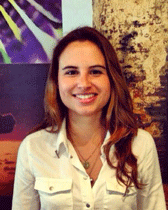Laura Acosta-Gonzalez

Area(s) of Interest
Peace, War and Social Conflict, Political Sociology, Cultural Sociology, Comparative-Historical Sociology, Social Networks, Latin America
Current Research
Dissertation: “Social Roots of Perpetual Civil Wars: War Cultures and Civil Conflict in Mexico and Colombia”
Biography
Laura is a PhD candidate in the Department of Sociology and a Graduate Student Fellow at the Buffet Institute for International Affairs. She studies the causes of the most persistent and hard-to-solve civil wars across the world. Her dissertation project looks both across and inside civil wars to investigate why some civil wars perpetuate, and to expose the factors that lead to their self-reproduction.
Previous empirical projects also include a study of the 2016 peace plebiscite in Colombia to understand how the interplay of objective and subjective victimization shapes preferences for conflict resolution.
Publications
Mahoney, James & Laura Acosta. (2021). “A Regularity Theory of Causality for the Social Sciences”, Quality & Quantity. (Online First). DOI:10.1007/s11135-021-01190-y
Acosta, Laura & Robert Braun. (2021). “War Commemoration and Nationalism in Belgium, 1914-1945: The Role of Military Networks”, Social Forces. (Online First). DOI:10.1093/sf/soab050
Acosta, Laura. (2021). “Victimhood dissociation and conflict resolution: evidence from the Colombian peace plebiscite”, Theory and Society, 50(4), pp. 679–714.
Awards and Mentions
- Graduate Student Paper Award in the Sociology of Human Rights Section of the American Sociological Association, 2021
- Richard A. Peterson Prize for Best Graduate Student Paper in the Sociology of Culture Section of the American Sociological Association, 2021
- Outstanding Published Article Award in the ASA Peace, War, and Social Conflict Section of the American Sociological Association (Honorable mention), 2021
- Best Graduate Student Paper Prize in the Theory Section of the American Sociological Association (Honorable mention), 2021
- Robert F. Winch Award for Outstanding Second Year Paper, Department of Sociology, Northwestern University, 2018
